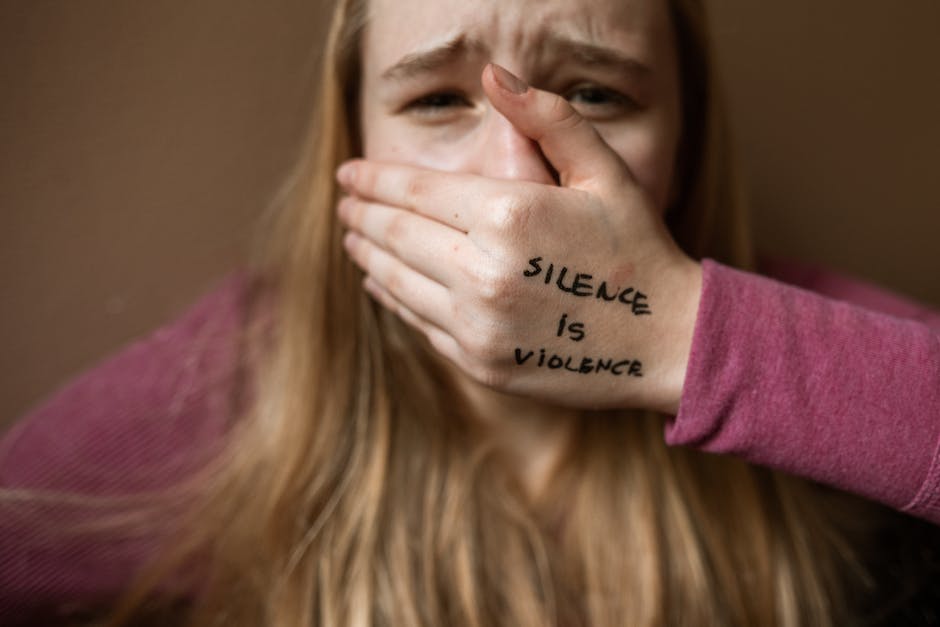Recognizing the symptoms of toxicity in a relationship and developing the strength to leave such a situation requires courage and acute self-perception. One needs to identify the red flags and unhealthy dynamics that characterize a damaging association – from manipulation and control to criticism and systemic power imbalance—it’s imperative to comprehend these patterns and confront their existence in your relationship. Grasping the emotional process involved in ending a relationship is just as vital; learning to manage guilt, fear and uncertainty is a significant step in bolstering your resilience and mental fortitude. Additionally, drawing a clear, assertive line with your partner and effectively communicating your decision may potentially mitigate the intensity of conflicts following the separation. Lastly, the journey of healing post-breakup and self-care becomes a high point—as you build a support network and start moving on.
Advertisment
Recognizing the Signs of a Toxic Relationship
Recognizing the Signs of a Toxic Relationship
Advertisment
It is crucial to be aware of the signs of a toxic relationship. While every relationship goes through periods of friction, ongoing patterns of harmful behaviors are a clear indication of a toxic dynamic. Recognizing these patterns can be the first step towards ending a toxic relationship.
Advertisment
Constant Criticism and Disrespect
Continuous criticism or disrespect from a partner is one potentially toxic trait. This type of negativity can take many forms, from belittling remarks to outright insults, sarcasm, or passive-aggressive behaviors. Subtler forms might involve constant questioning of your decisions, second-guessing your thoughts, or demeaning your abilities.
Advertisment
Manipulation and Control
Manipulation and control are central to many toxic relationships. A manipulative partner might use guilt, blame, or coercion to manipulate your feelings and behaviors for their benefit. They may frequently make you feel responsible for their feelings or place the blame on you for any issues in the relationship.
Advertisment
Unhealthy Power Dynamics
Advertisment
An imbalance of power can also be a strong indication of a toxic relationship. The power imbalance might manifest in a partner dictating your activities, making decisions without your input, or controlling shared resources. Often, the controlling partner will use tactics like guilt or intimidation to maintain this power dynamic.
Advertisment
Neglected Needs
Advertisment
Ignoring or demeaning your needs is another sign of a toxic relationship. A partner might disregard your emotional needs, dismiss your opinions, or demand that their needs always take precedence. They may regularly invalidate your feelings, make little to no effort to understand your viewpoint, or disregard important boundaries you’ve set.
Advertisment
Persistent Uncertainty and Anxiety
Advertisment
Chronic feelings of unease and tension are common in toxic relationships. If you constantly feel anxious about your partner’s reaction, fear to express your thoughts, or walk on eggshells to avoid conflicts, it’s a sign that the relationship might be unhealthy.
Advertisment
It is important to note that if your partner is physically, emotionally, or sexually abusive, you are certainly in a toxic relationship. In such cases, prioritize your safety and consult a professional or trusted individual for advice and support to exit that situation.
Advertisment

Advertisment
Emotional Preparedness
Advertisment
Understanding the Emotional Process Involved in Ending a Relationship
Advertisment
The first step towards ending a toxic relationship is to comprehend the emotional upheaval that may ensue. It’s natural to experience feelings of guilt, fear, sadness, and a sense of loss, even if the relationship you’re leaving is harmful. Recognize that these feelings will appear and that they are a normal part of the process. Write down your emotions as they emerge; this can provide a therapeutic outlet for your feelings and may allow you to more clearly understand the reasons behind choosing to end the relationship.
Advertisment
Strategies to Manage Feelings of Guilt, Fear and Uncertainty
Advertisment
Here are some strategies to cope with challenging emotions during the process:
Advertisment
- Regularly remind yourself of the reasons you are choosing to end the relationship. Focus on the harm and discomfort it has caused you.
- Normalize your feelings. Remember, it’s okay to feel guilty, scared or uncertain. Ending a relationship, particularly a long-term one, often involves a range of complex emotions.
- Engage in self-care activities that help you relax and decompress. This can include meditation, exercise, spending time in nature, or engaging in a hobby you enjoy.
- Consider seeking professional help. Therapists and counselors can provide tools and strategies to navigate through your emotions, while offering a safe and confidential space to express your feelings.
Advertisment
Boosting Self-confidence, Assertiveness, and Resilience
Advertisment
Building self-confidence, assertiveness, and resilience are critical for managing the process of ending a toxic relationship:
Advertisment
- Prioritize Self-Assertion: Practice politely but firmly expressing your feelings and needs. This can be conducted in a mirror, or with a trustworthy friend or counselor.
- Cultivate Self-Love: Engage in actions that make you feel good about yourself – be it pampering yourself, pursuing a passion or hobby, or serving others. These acts tend to boost self-esteem.
- Foster Resilience: Understand that the feeling of hurt or grief won’t last forever, and neither will this phase of life. It’s crucial to remember that your value doesn’t decrease based on someone’s inability to see your worth.
- Establish Boundaries: Clearly knowing what you will and will not tolerate can give you a renewed sense of control.
Ending a toxic relationship can be difficult, but by focusing on emotional preparedness, one can navigate through the process with a better understanding of what to expect and how to handle the challenges that may arise.

Effective Communication
Identifying the Toxic Elements
Before deciding to end a relationship, it’s essential to identify what is toxic in your relationship. Toxic behaviors can include emotional or physical abuse, constant criticism, lack of respect for your boundaries, manipulation, or continuous unresolved conflicts. If any of these aspects are present in your relationship on a regular basis, it may be worthwhile considering whether the relationship is healthy for you.
Communicate Effectively
One important step in ending a toxic relationship is learning to communicate effectively about your feelings and decisions. It is essential to be clear, concise, and assertive, avoiding blaming or accusatory language. Stick to expressing how certain behaviors make you feel rather than criticizing the other person’s character. For instance, instead of saying, “You’re always so neglectful,” you could say, “I feel neglected when you don’t respond to my calls or messages.”
Setting Boundaries in Conversations
When you are expressing your feelings and decision, it is important to have boundaries to prevent the conversation from escalating into a conflict. Refrain from engaging in heated arguments, cutting off conversations if they become emotionally abusive, draining or manipulative. Remember to stay calm and composed even when the other person becomes defensive or reacts negatively. Remember, your feelings are legitimate and valid, and you have the right to express them without any fear of retaliation or abuse.
Be Assertive but Compassionate
Being assertive means expressing your stance without being aggressive. You can assert your decision to end the relationship while showing empathy and understanding for your partner’s feelings. For instance, instead of saying, “I can’t stand you and I don’t want to see you anymore,” you could say, “I believe it’s best for me to move on from this relationship. I realize this might hurt, which isn’t my intention.”
Practice Self-Care
It’s essential to take care of yourself both during and after the breakup process. This includes attending to your emotional needs, relying on a support system of friends and family, and indulging in activities that provide a sense of joy and relaxation. Emotional self-care is crucial to rebuilding one’s sense of worth and confidence after ending a toxic relationship.
Seek Professional Help
There are times when breaking up can become challenging, especially when the toxic relationship involves intense emotional manipulation or physical abuse. If you find it difficult to manage your emotions or feel threatened, don’t hesitate to seek help from professionals such as therapists or counselors. They can provide strategies for managing emotions, safe ways to communicate your decision, and resources for additional support.
After Breaking Up
Once you have ended the relationship, it’s important to maintain distance to heal emotionally and avoid falling back into toxic patterns. This may involve blocking them on social media, avoiding common hang-out spots, or refraining from personal communication. Maintaining no contact allows you to fully disconnect from the relationship and focus on your healing and growth.

Post-relationship Recovery and Self-care
Understanding the Need for Recovery
Post-relationship recovery from toxic relationships is essential for your mental and emotional well-being. A toxic relationship can leave you feeling drained, stressed, and emotionally battered. Exit from such a relationship should be seen not as a failure but a step towards a healthier life. Healing from such a stressful experience may involve therapy, self-care routines, and creating a trustworthy network of support.
Establishing a Self-care Routine
Following a toxic relationship, it’s essential to establish a self-care routine to promote recovery and wellbeing. Start by focusing on your physical health. Adequate sleep, regular physical exercise, and a nutritious diet are building blocks of this routine. Mindfulness practices such as meditation, deep breathing, and yoga can ease stress and improve mental wellbeing.
Practicing self-love is another essential aspect of self-care. Encourage positive self-talk, reward yourself for your accomplishments, no matter how minuscule, and learn to set boundaries that preserve your mental and emotional health.
Building a Support Network
A resilient support network can be a lifeline after a toxic relationship. Reach out to family, friends, or people with whom you share common interests. Start with the people you trust and feel comfortable around.
Aside from personal relations, there are support groups where you can share your experiences and learn from others who have been in similar situations. Having a sounding board for your feelings can promote healing and provide a much-needed sense of community and understanding.
Moving on From the Past
Slowly distancing yourself from the pain of your past relationship can help you recover from a toxic situation. Try to limit constant reminiscing or dwelling on past experiences. Replace thoughts of your past relationship with hopes and plans for your future.
Engage in activities that you truly enjoy and can lose yourself in—this could be a previous hobby that was neglected or something new that you’ve always wanted to try. The goal is to create new, positive experiences and memories that supplant the old, painful ones.
Seeking Professional Help
It is essential to acknowledge when you might need professional help while recovering from a toxic relationship. When feelings of despair, anxiety, or other distressing emotions persist despite your efforts at self-care, reaching out to a licensed therapist or counselor is a prudent step. They can provide expert guidance, develop customized recovery strategies, and help you navigate the healing process.
Moreover, if feelings of self-harm or suicide ever cross your mind, you should immediately reach out for help. National helplines such as the National Suicide Prevention Lifeline (1-800-273-8255) or Crisis Text Line (text HOME to 741741) can give immediate support.
Conclusion
It’s crucial to understand that healing and recovery from a toxic relationship take time, and it’s different for everyone. However, by taking the time to foster self-care routines, form a supportive community, and seek professional help as needed, you can make strides toward healing and building a healthier, happier future.

No journey is easy, especially when it deals with severing ties in a toxic relationship. Nevertheless, recovery and personal growth are not only achievable, they become catalysts for a greater resolve and understanding of oneself. Equipped with strategies for effective communication, emotional preparedness, and recognition of a toxic relationship, you have the tools to safely untangle yourself from harmful situations and interactions. More importantly, the commitment to post-relationship recovery and self-care allows a fresh perspective towards the past and motivates you to seek a more enriching essence of life, potentially inclusive of professional help. Your journey, regardless of its difficulty, is a testament to your strength and determination—an undeniable step towards redefining and securing your emotional ecosystem.
Advertisment
 Fastrumours Information update spot
Fastrumours Information update spot




